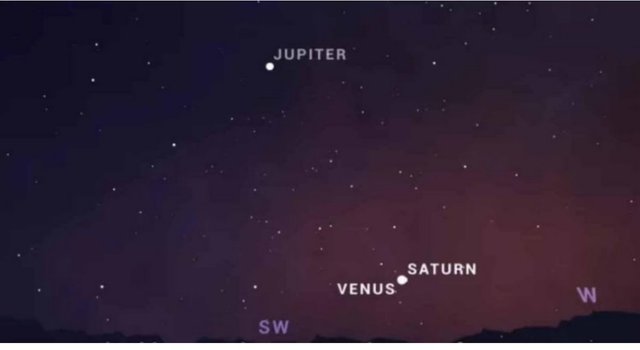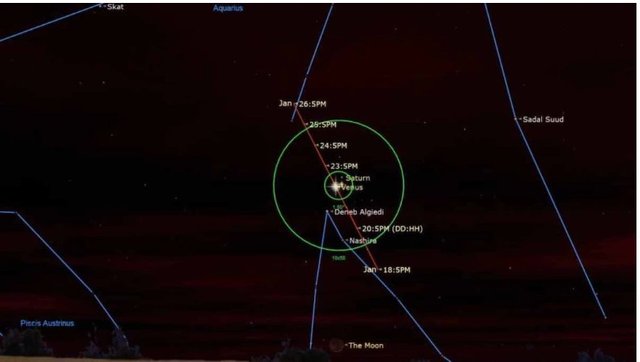Saturn and venus conjunction: one in the sky today Venus and Saturn will be seen together, know how and when can see to these planets

Venus and Saturn will be seen very close to each other from Earth (Photo: NASA)
This evening, you can witness a rare phenomenon in the sky. Saturn and Venus are going to be visible to you together today. Even though we can see these planets together from the earth, but in reality these two are more than 13 crore kilometers away from each other. Know when and how they can be seen.
On the evening of Sunday 22 January, the planets Saturn and Venus are going to come very close to each other. Both the planets are more than 13 crore kilometers away from each other, so there is no possibility of their collision. But their orbits are such that they will appear very close to each other from Earth.
Saturn and Venus coming so close to each other is called Conjunction. Venus is the second planet from the Sun, while Saturn is the second largest planet in our solar system.

Venus and Saturn will be so close (Photo: Starry Night Software)
If you want to see these planets meeting sitting at home, then let us tell you that the Virtual Telescope Project is streaming it live. The livestream will begin when the two planets are less than half a degree apart. The live stream begins Sunday at 11 a.m. (EST) (1600 GMT) on the Virtual Telescope Project's website and YouTube channel.
According to In-the-Sky.org, from New Delhi, both these planets can be seen 16 degrees above the southwestern horizon, around 18:07 (IST). This is the time when evening sets in and it gets dark. They will then sink towards the horizon, setting at 19:30, 1 hour 39 minutes after the Sun.
Although both Saturn and Venus can be seen with open eyes at night, but there is a lot of difference in the brightness of both of them. After the Sun and the Moon, Venus is the brightest planet in the Milky Way. During this conjunction, Venus will be at -3.9 and Saturn at 0.7 magnitude. Bright objects in the sky are shown with negative numbers.
This means that the planet Saturn will be about 100 times dimmer than Venus during this conjunction. During this conjunction, both the planets will be so close that skywatchers will be able to see them easily without binoculars or any equipment. However, seeing Saturn will not be that easy. Scientists believe that this sight can be seen only when all the conditions including the weather are favorable for it. Saturday was the new moon of the month of January and the next day of new moon, the moon becomes crescent and its brightness is only 2%.